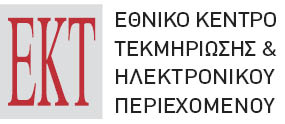The present study aimed to examine blogs’ effectiveness on physical educators’ (TPE)further education, on the basis of three different cooperative teachingmethods/approaches (STAND, COOL, and ICL), in order to determine the mostbeneficiary ways to pedagogically exploit blogs on distance education (DE). Trainingcourses’ effectiveness was evaluated through the quantitative and qualitative approachof cognitive and metacognitive functions (knowledge, ability in evaluating TPEs’teaching performance), and emotional skills (perceived learning), as well as parametersdirectly related to (interaction) or influence learning (attitudes). The participants of thestudy were 54 TPE (29 men and 25 women) currently working in school units in ninedifferent geographical regions of Greece, who took an eight weeks’ distance trainingcourse, on effective teaching of physical education (PE). The training course utilizedthree different cooperative methods (STAND, COOL, and ICL) in three correspondencegroups of TPE, who were users of three technically identical, but separated blogs. At theprocess of designing the learning environment, an emphasis was placed upon thedevelopment of interaction, exploiting certain special technological characteristicsoffered by blogs, to support a) the growth of asynchronous, threaded discussion amongblogs’ members and b) the possibilities for availability and management of multiplemultimedia contents’ forms. The statistical analysis included descriptive statistics, nonparametric compare means test (Mann-Whitney U test), one-way Anova, two-wayAnova, Αnova repeated measures, MANOVA, correlation and social networks’ analysistechniques. Interaction was qualitatively evaluated through written discourses’ contendanalysis based on “interaction analysis model” (Gunawardena, Lowe & Anderson,1997). According to the results, TPE trained on the STAND and COOP methodsexcelled in the total of the evaluated variables (cognitive and metacognitive functions,perceived learning, and interaction) in comparison with ICL participants. Participants’attitudes towards the Information and Communication Technologies’ (ICT) use for educational purposes were positive. Therefore, they did not impact the results. Inconclusion, it is suggested that the exploitation of a pedagogically created framework ofblogs could efficiently support different cooperative teaching patterns, as well asreinforce the support of DE programmes targeted towards PETs’ life-long furthereducation.

